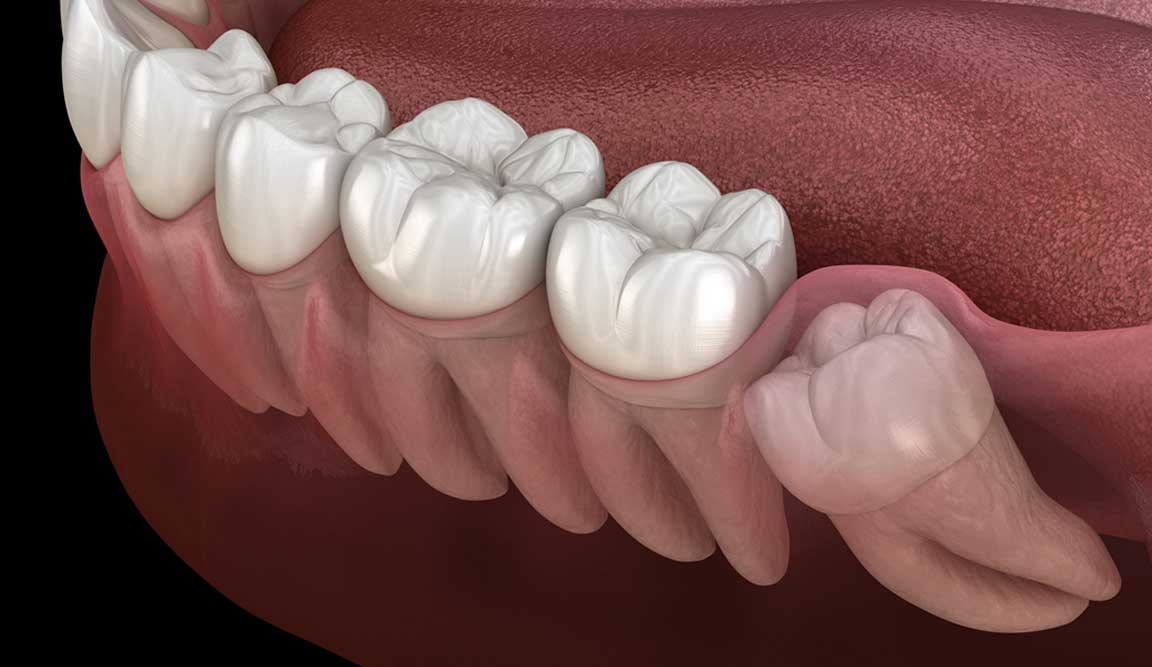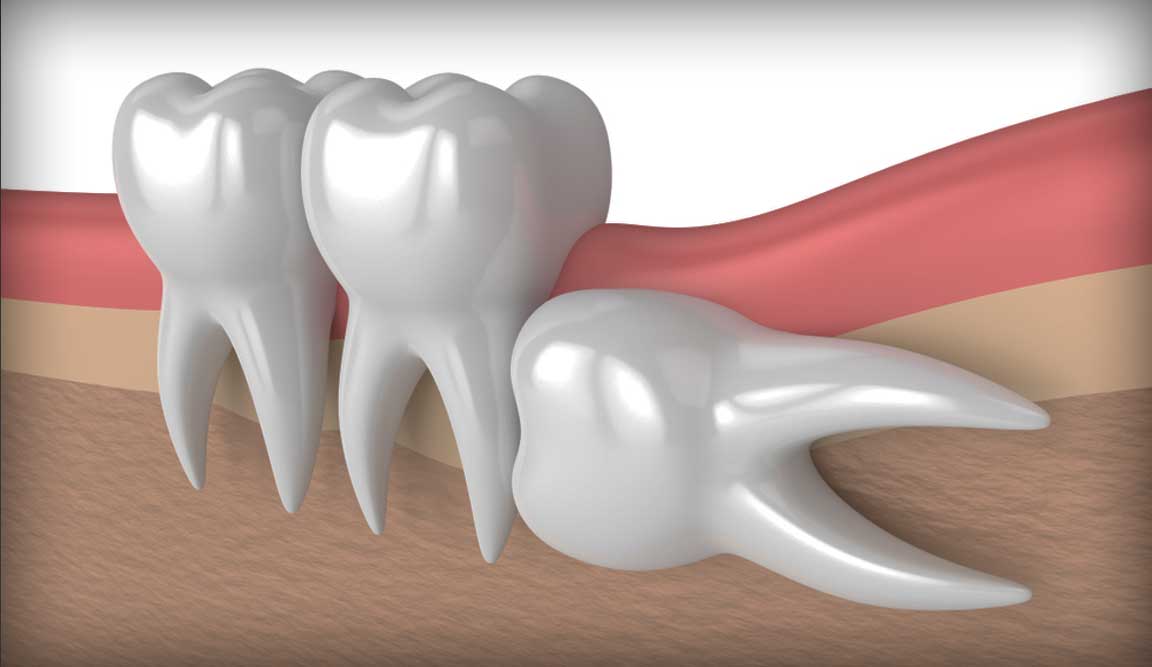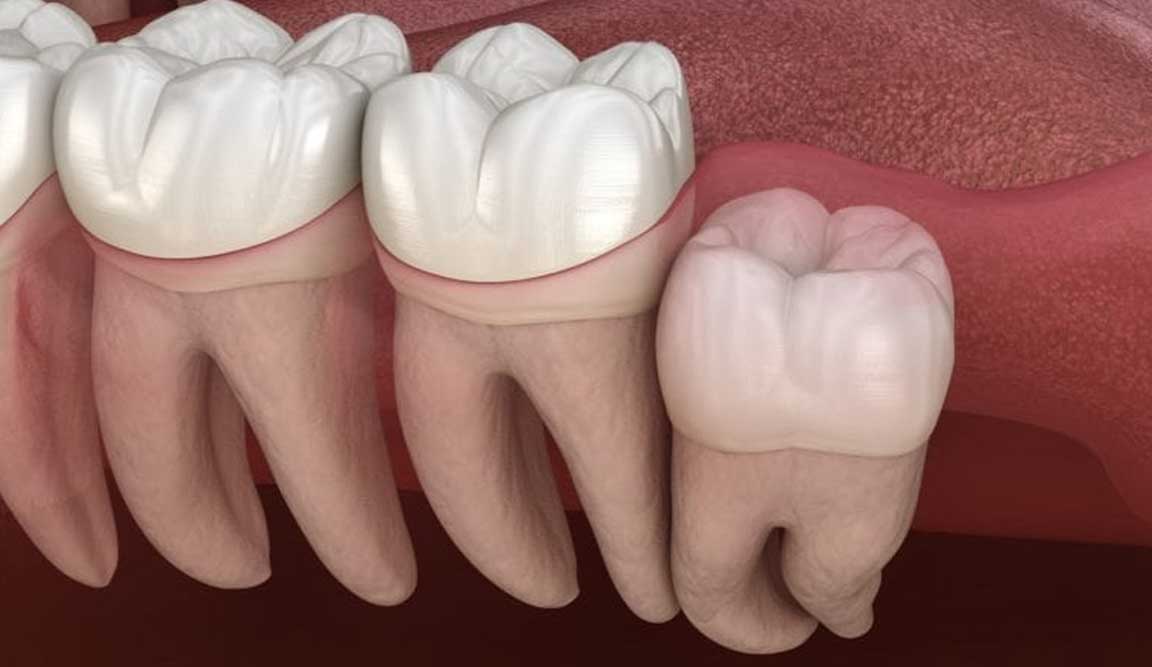Wisdom Teeth Removal

-
Wisdom teeth are the last teeth to erupt within the mouth. When they align properly and gum tissue is healthy, wisdom teeth do not have to be removed. Unfortunately, this does not generally happen. The extraction of wisdom teeth is necessary when they are prevented from properly erupting within the mouth. They may grow sideways, partially emerge from the gum, and even remain trapped beneath the gum and bone. Impacted teeth can take many positions in the bone as they attempt to find a pathway that will allow them to successfully erupt.
3019 Brighton 1st Str, Brooklyn, NY 11235
Request Appointment
-
These poorly positioned impacted teeth can cause many problems. When they are partially erupted, the opening around the teeth allows bacteria to grow and will eventually cause an infection. The result: swelling, stiffness, pain, and illness. The pressure from the erupting wisdom teeth may move other teeth and disrupt the orthodontic or natural alignment of teeth. The most serious problem occurs when tumors or cysts form around the impacted wisdom teeth, resulting in the destruction of the jawbone and healthy teeth. Removal of the offending impacted teeth usually resolves these problems.
Early removal is recommended to avoid such future problems and to decrease the surgical risk involved with the procedure.

Mesial impactions
The most commonly occurring type of wisdom teeth impaction. With a mesial impaction, the tooth is partially erupted and angled towards the front of the mouth. For this reason, mesial impactions are sometimes referred to as “angular impactions”. This type of impaction may or may not cause issues and is usually closely monitored before making decisions on whether or not to remove the tooth.

Horizontal Impactions:
Horizontal impactions are a type of full impaction where the tooth is lying completely horizontally underneath the gums. Instead of moving up through the gums, the horizontal orientation of the tooth causes it to move sideways into the tooth next to it. For this reason, horizontal impactions are considered to be the most painful type of wisdom tooth impaction. To alleviate pain and prevent damage to the adjacent teeth, wisdom teeth that are horizontally impacted must be removed with a surgical extraction.

Vertical Impactions:
Vertical impactions are a type of full impaction where the tooth is in the correct position for eruption, but still lies below the gums. Since wisdom teeth with vertical impactions are in the correct position, extraction is rarely needed unless the erupted tooth is expected to cause overcrowding or if it is exerting too much pressure on the tooth root next to it.

Distal Impactions:
Distal impactions are the most rare of all types of wisdom teeth impactions. Like teeth with a mesial impaction, teeth with a distal impaction are angled and can sometimes be called “angular impactions”. However unlike a mesial impaction, teeth with a distal impaction are angled towards the back of the mouth and may be partially or fully impacted. The need for extraction will depend upon the degree of the tooth angle, as well as whether the tooth is partially or fully impacted.
CT Scan
When Should You Get a CT-Scan For Wisdom Teeth Extraction?
-
A CT-scan provides more detailed information about the position of wisdom teeth and their proximity to nerves and sinuses. While not indicated routinely for wisdom teeth, this type of image is helpful for patients who have severe or deeply impacted wisdom teeth and whose oral surgeon is concerned about proximity to nerves, sinuses, or cysts. Although rare, any irritation to the nerve that passes under the lower wisdom teeth, can lead to a period of numbness along the lip and chin area. In most cases, this condition is temporary and resolves gradually in six to eight weeks. Only in rare instances, it may become more prolonged or permanent.

Symptoms
Impacted wisdom teeth don't always cause symptoms. However, when an impacted wisdom tooth becomes infected, damages other teeth or causes other dental problems, you may experience some of these signs or symptoms
Red or swollen gum
Jaw pain | Headache
Tender or bleeding gums
Swelling around the jaw
Bad breath,
An unpleasant taste in your mouth
Difficulty opening your mouth
Brighton dental practice
Oral & maxillofacial surgeons

Paul Chin-Fan Li, DDS, MD, OMFS
Oral Surgeon
Board Eligible Oral and Maxillofacial Surgeon Columbia University School of Dental and Oral Surgery Drexel University College of Medicine

Dr. Yijiao Fan, DDS, OMFS
Oral Surgeon
American Dental Association, American Association of Oral and Maxillofacial Surgeons, The University of Toronto, Honours Bachelor of Science degree in Neuroscience, New York University College of Dentistry

Dr. Adam S Brisman, DMD
Oral surgeon
One of the Top Doctors & Dentists in New York by the prestigious Top Doc New York as seen on channel Fox 5
How to Prepare For Oral Surgery
In most cases, the removal of wisdom teeth is performed under local anesthesia, IV sedation or general anesthesia. These options, as well as the possible surgical risks, will be discussed with you before the procedure is performed. Once the teeth are removed, the gum is sutured. To help control bleeding, gauze is placed in your mouth. You will rest under our supervision in the office until you are ready to be taken home. Upon discharge, your postoperative kit will include postoperative instructions, a prescription for pain medication, antibiotics, and a follow-up appointment in one week.
Brighton Oral Surgeon
call Us: (718)366 0070
text Us: (929) 888-9814

Oral Surgery Procedures
Oral Surgery Procedures Wisdom Teeth Extraction Dental Implants Sedation | Anesthesia